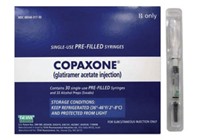Advertisement
Grab your lab coat. Let's get started
Welcome!
Welcome!
Create an account below to get 6 C&EN articles per month, receive newsletters and more - all free.
It seems this is your first time logging in online. Please enter the following information to continue.
As an ACS member you automatically get access to this site. All we need is few more details to create your reading experience.
Not you? Sign in with a different account.
Not you? Sign in with a different account.
ERROR 1
ERROR 1
ERROR 2
ERROR 2
ERROR 2
ERROR 2
ERROR 2
Password and Confirm password must match.
If you have an ACS member number, please enter it here so we can link this account to your membership. (optional)
ERROR 2
ACS values your privacy. By submitting your information, you are gaining access to C&EN and subscribing to our weekly newsletter. We use the information you provide to make your reading experience better, and we will never sell your data to third party members.
Policy
Supreme Court Limits Some Medical Patents
by Glenn Hess
March 26, 2012
| A version of this story appeared in
Volume 90, Issue 13
The Supreme Court ruled last week that Prometheus Laboratories cannot patent a diagnostic method for observing changes in a patient’s body to determine the optimal dosage of a drug used to treat autoimmune disorders. The justices unanimously found that the biotech company’s claims are invalid because the observations made to determine the proper drug dosage are a natural phenomenon, which cannot be patented. “We conclude that the patent claims at issue here effectively claim the underlying laws of nature themselves. The claims are consequently invalid,” Justice Stephen G. Breyer wrote in the Court’s opinion. As a result of this ruling, experts say, some of the thousands of patents issued in the past two decades for diagnostic methods and tests may be challenged. “We are surprised and disappointed in the Court’s decision,” says Hans Sauer, deputy general counsel for the Biotechnology Industry Organization, an industry trade group. “We are concerned that it introduces new and confusing concepts into the traditional body of patent law.” But the American Medical Association, which represents physicians, calls the decision “a clear legal victory that ensures critical scientific data remain widely available for sound patient care and innovative medical research.”




Join the conversation
Contact the reporter
Submit a Letter to the Editor for publication
Engage with us on Twitter